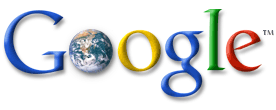Creative Commons

I have very big interest in Creative Commons, founded by Lawrence Lessig. I have seen many potential variations and use of works of art published: literature, music, samples, and even games and film-samples. Because I have tried to use the creative commons community in all of my work I am well aware that there are a lot of people who share the same principle: share, and not in a way that communism does, but in a creative and attributive way.
I will keep on fighting for the use of creative commons licensed materials as well that I will promote to share as well, it is just a fair thing to do, since you'll get exposure anyway if you share. Maybe this interest could result in a master thesis, will start writing in January 2009. At next Thursday I'll have a meeting with a good friend of mine who is interested in this concept from a legal point of view and he asked me to brief him :-) .
I thank, Dr. Cathrina Maracke, Director of CREATIVE COMMONS INTERNATIONAL for the letter of recommendation I got for my succesful job application.
Human Rights - Search Engines/ Internet

Another example is the presentation I have done in Thessaloniki, Greece (1). The Lecture I have given, Lessig-style, was about two different sides on the freedom of expression: the constitutor and the receptor. How people mainly in the Europe and America use the internet on a daily base, in daily life and how we get our (anti-) information... Via the internet!
I concluded with a statement:"This presentation could contribute to a worlds right on free or easy available internet access. Barriers shall not be there and not prevent people from writing, expressing, telling about their worlds, experiences and therefore contribute to a vibrant intercultural internet culture"
InternetForEveryone.org
A few weeks ago I experienced that there is a new American Nationwide initiative about exactly this. It is called internetforeveryone.org. The Introduction of the Project (2) was done by a panel of some prominent individuals and representatives of some major organisations.
Key words:
1. Access
2. Choice
3. Openness
4. Innovation
Speaker at the Launch:
- Josh Silver, Free Press
- Brad Burnham, Union Square Ventures
- Robin Chase, Meadow Networks, Zipcar
- Jonathan Adelstein, FCC commissioner
- Michael Winship, WGA-East
- Jonathan Zittrain, Berkman Center for Internet & Society
- Tim Wu, Columbia Law School
- Vint Cerf, Google (this title is not new (3))
- Larry Lessig, Stanford Law School
- David All, TechRepublican.comVan Jones, Green For All
Mission of GOOGLE

...to organize the world's information and make it universally accessible and useful.
So in general I am very big fan of this whole concept of promoting the internet use, the creativity, the lawfully re-creation & attribution. It is actually the basis, that one will be acknowledged for what one does: Everyone, including e.g. photographer, I want my work to be known in the world, on the internet, via google and maybe even the constitution (4) can create such an exposure.
-----------------------------------------------------------------------------------------------
(1) D.J.R. Sterenborg, Search Engines & Human Rights, a closer connection to a better world, available for download at: www.djrsterenborg.eu, published April 2007, under the Creative Commons licence: BY-NC-ND and please SA - Attribution: state my name and homepage clear, Non-Commercial Use, Derivative Works are not permitted and please Share under the same license Alike.
(2) InternetforEveryone.org Launch: http://www.youtube.com/watch?v=726e5Nhh-Mk
(3) Vincent Cerf, RFC 3271, http://www.faqs.org/rfcs/rfc3271.html published April 2002.
(4) Like I have mentioned: internet is important and I might do some Master thesis research to support the thought that "a free or easy available internet access" is a constitutional human right.



.JPG)